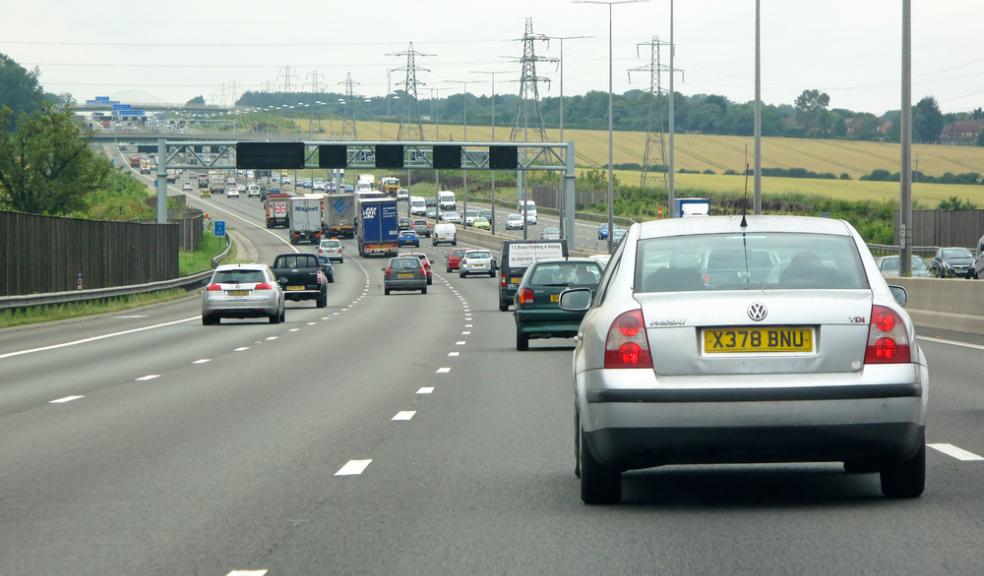
On-the-spot fines for motorway middle-lane hoggers and tailgaters
The government has announced that the police will be given new powers to issue fixed penalty notices for careless driving from July.
The changes will also aim to address drivers' 'pet hates' by enabling police the flexibility to hand out on-the-spot fines for "careless" driving offences such as tailgating or middle-lane hogging.
The government says the powers wil help free up officers from time consuming court processes and enable police to offer alternatives from licence penalties such as educational training. Drivers will retain the right to appeal any decision through the courts.
The AA and RAC have both broadly welcomed the initiative. However the Institute of Advanced Motorists (IAM) have raised concerns. Its Director of Policy, Neil Grieg told the BBC:
"This is a major change in traffic law enforcement and the IAM is concerned that issuing fixed penalty tickets for careless driving downplays the seriousness of the offence.
"Careless covers a wide range of poor to reckless driving behaviour that often merits further investigation.
"This could free up traffic police time and allow them to maintain a higher profile.
"But without traffic cops out on the road to enforce this new approach it will have little impact on road safety."
In a written statement to Parliament, Road Safety Minister, Stephen Hammond MP said: "Careless drivers put lives at risk and are also a major source of concern and irritation for law-abiding motorists."
Penalty increases
The government have also announced they will raise the fixed penalty levels for most motoring offences. The fine for using a mobile phone at the wheel or not wearing a seatbelt will rise to £100 to bring them into line with the penalties for similar non-motoring fixed penalties.
The fixed penalty for careless driving will be £100 with three points on the driver’s licence. The government underlines that most serious examples of careless driving will continue to go to court, where offenders may face higher penalties.
Penalties for other driving offences will rise to reflect their seriousness and ensure consistency with other similar penalty offences:
- a non-endorsable £30 fixed penalty notice will rise to £50
- an endorsable £60 and non-endorsable Fixed Penalty Notice will rise to £100
- an endorsable £120 Fixed Penalty Notice will rise to £200
- the fixed penalty notice for driving with no insurance will rise from £200 to £300
Graduated fixed penalties (mainly for commercial goods and passenger carrying vehicles and includes offences like drivers’ hours and overloading) and financial deposits (for drivers without a satisfactory UK address) will also increase:
- a £30 non-endorsable fine will rise to £50
- a £60 endorsable and non-endorsable fine will rise to £100
- a £120 endorsable and non-endorsable fine will rise to £200
- a £200 endorsable and non-endorsable fine will rise to £300
In its statement to Parliament, the Department of Transport says:
"Endorsable road traffic offences contribute to a significant number of casualties. For example, in 2011, excess speed contributed to 213 deaths and using a mobile phone while driving contributed to 374 road casualties.
"Though penalty levels will increase, penalty points will not change. Fixed penalty notices for parking, waiting and obstruction offences will also remain unchanged."
The changes follow extensive Department of Transport consultation with the public, motoring organisations and the police.













